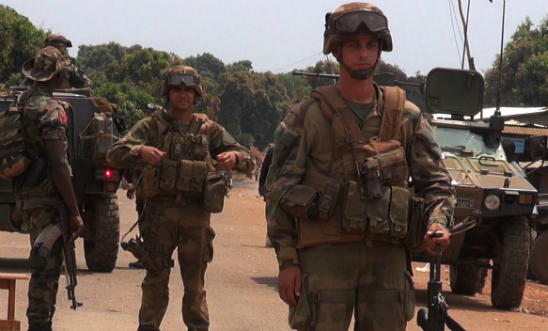
Press releases
Central African Republic: Huge gap between troops promised and troops deployed a major concern

'The gap between the number of peacekeepers promised and the number deployed must be urgently filled'
Amnesty’s Steve Cockburn
The new United Nations peacekeeping mission in the Central African Republic (CAR) must be urgently brought up to full capacity to ensure the protection of a civilian population vulnerable to serious human rights violations, said Amnesty International today as the mission deploys. Currently only 65% of the dedicated UN peacekeeping mission will be sent to the region at this stage.
Amnesty International’s Deputy Regional Director for West and Central Africa, Steve Cockburn said:
“The switch from African Union to UN peacekeepers must be more than a cosmetic change: the swapping green berets for blue helmets. Instead it must serve as a fresh start for the peacekeeping operation in CAR.
“The gap between the number of peacekeepers promised and the number deployed must be urgently filled. Only once the full force is on the ground, undertaking patrols and protecting CAR’s civilian population, can the UN properly fulfil its protection mandate.”
Amnesty has documented a catalogue of serious human rights violations, including unlawful killings, committed by some AU troops. Amnesty is calling for the UN to ensure that peacekeepers suspected of committing human rights violations in CAR when serving in AU troops are not allowed to be part of the UN force. Instead they must be investigated and where there is sufficient evidence, held to account.
Stephen Cockburn added:
“All alleged incidents involving AU troops must be investigated and the flawed vetting system currently in place must be improved to ensure that there is no place in the UN mission for peacekeepers suspected of committing human rights violations.
“The UN must ensure that its own policy on human rights vetting of UN personnel applies at all times and that soldiers, police and civilian staff have clean human rights records in their countries and abroad.”
Following an incident in Bangui on 29 March 2014 in which around 30 civilians were killed and hundreds of others wounded by Chadian peacekeepers, Chad unilaterally withdrew its troops from the AU force the following month. On 24 March 2014 Congolese (Brazzaville)’s contingent of the AU troops were implicated in the enforced disappearance of at least 11 people. To Amnesty’s knowledge, no MISCA peacekeepers have been prosecuted for any human rights violations.
Notes to the editor
The Multidimensional Integrated STABILIZATION Mission in the Central African Republic (MINUSCA) which has taken over authority from the African Union-led International Support Mission (MISCA), has a duty to protect civilians from the threat of physical violence, including specific protection of women and children affected by the ongoing armed conflict. In order to fulfil this duty, MINUSCA must show the population of CAR that its presence can make a tangible difference on the ground.
The initial MINUSCA deployment comprises approximately 7,600 peacekeepers Amnesty is calling on the UN to bring MINUSCA its agreed full capacity of around 12,000 troops and police at the earliest possible opportunity. Amnesty is also calling for the prompt deployment of all other essential staff including human rights monitors.